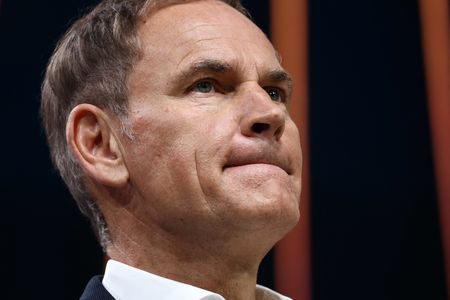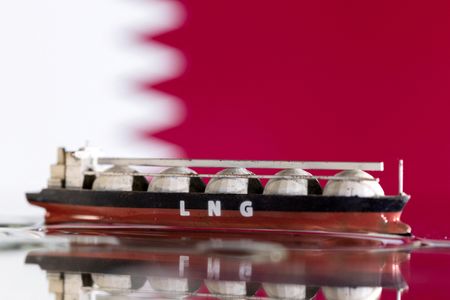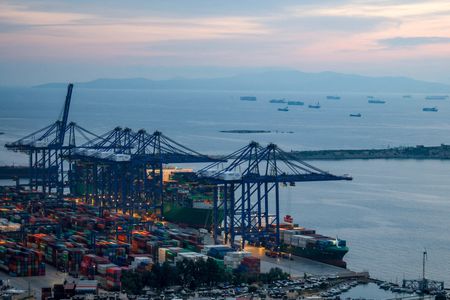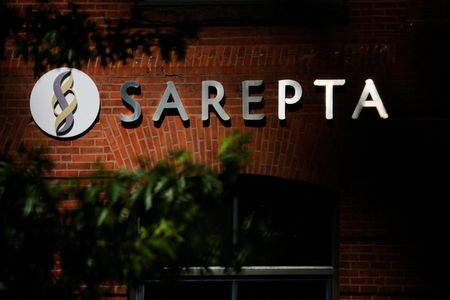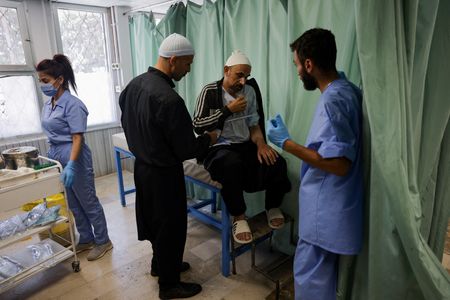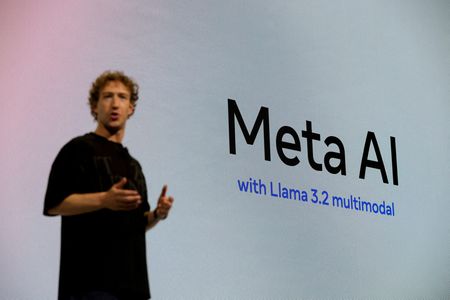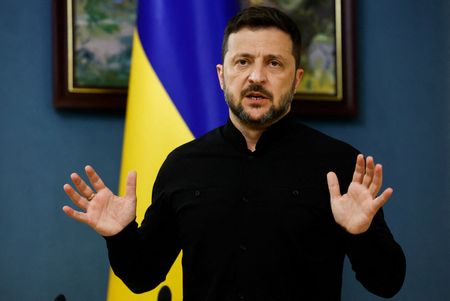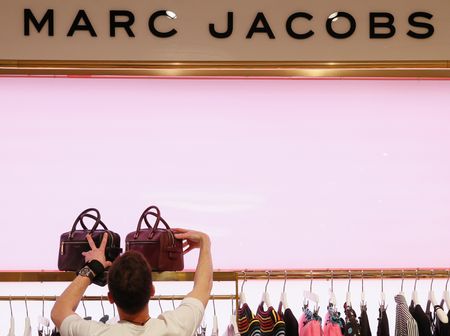By Rachel More
BERLIN (Reuters) -Europe’s largest car manufacturer Volkswagen is hoping investment commitments can help it negotiate further concessions on U.S. tariffs once Washington and the European Union strike a broad trade deal, CEO Oliver Blume told investors on Friday.
As they wait for the outcome of trade talks between the U.S. and the EU ahead of an August 1 deadline, European carmakers are also looking at possible investments or production shifts that might appease President Donald Trump and bring down tariffs.
“We hope that it will come to a well-balanced deal between the U.S. and the EU, which allows fair trade between the regions,” Blume told investors after reporting a second quarter heavily affected by tariffs.
Blume said he was expecting a 15% tariff for the EU, similar to one the Trump administration agreed with Japan earlier this week.
An additional deal with Volkswagen would come on top of this, once the tariff row is ended, Blume said. Trump imposed a 25% tariff on car and parts imports in April.
“We have a very attractive investment package we will do there,” he said, adding that the company has been in “good discussions” with the U.S. government.
Executives from major European companies have lobbied the White House for relief for their industries from tariffs and many have pledged to invest in the United States to appeal to Trump’s ambition to boost U.S. manufacturing.
But it would be highly unusual for a company to negotiate its own individual concessions and it is not clear if it would be possible under World Trade Organization rules.
A source at a rival carmaker was sceptical. If VW did broker its own terms, it would unleash “chaos” as other companies would want something similar, the source said.
Europe exported nearly 758,000 cars worth 38.9 billion euros ($45.55 billion) to the U.S. in 2024, more than four times as many as in the other direction, according to data from European auto association ACEA.
Pressed by investors for details on possible U.S. investments, Blume spoke only of a “scalable programme,” including projects with a clear business case.
The executive also mentioned the possibility of opening a plant for Volkswagen’s luxury brand Audi in the U.S., where the subsidiary currently has no production presence.
In February, Audi said it would look at expanding production. It has mulled bringing more production to North America since 2023, spurred by tax incentives offered under the Inflation Reduction Act passed by former U.S. president Joe Biden. Now, tariffs have created a fresh incentive.
Earlier in July, Brussels was discussing with U.S. counterparts a range of measures aimed at protecting the bloc’s auto industry from steep duties, including import quotas and credits against the value of EU automakers’ U.S. exports.
While there are expectations that the EU can agree a 15% tariff, avoiding the 30% levy that would come into force on August 1 without a deal, French car parts supplier OpMobility said it was concerning that the EU acting as a bloc seemed unable to negotiate better terms than individual countries.
“In the short term, we can probably say that we’ve avoided the worst, but that does not mean that it’s a good deal, at the end of the day it shows that the relationship is unbalanced,” CEO Laurent Favre said late on Thursday.
(Reporting by Rachel More and Christina Amann in Berlin;Additional reporting by Gilles Guillaume in Paris, Giulio Piovaccari in Milan and Philip Blenkinsop in Brussels;Editing by Tomasz Janowski and Elaine Hardcastle)

